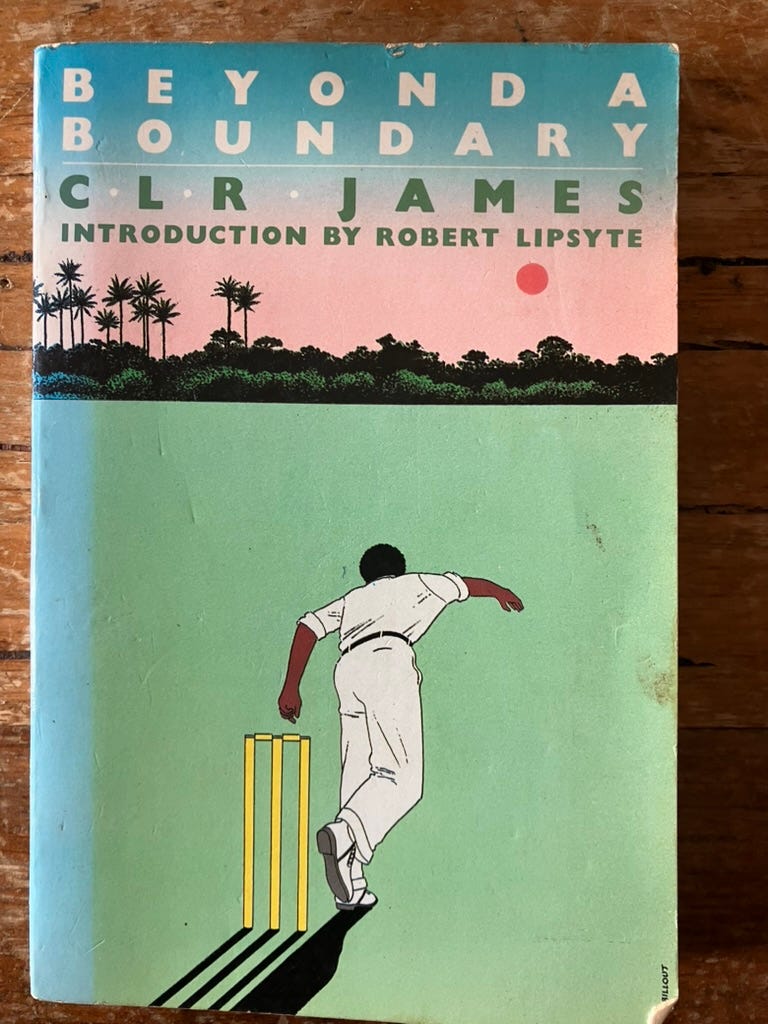Cricket Narratives: A Response
GH on cricket's uniquenesses
Yesterday Cricket Et Al republished an erudite paper, ‘Cricket Narratives’, delivered last week by English professor Paul Giles of Australian Catholic University. Afterwards, I offered this briefer response, narrowing in on his remarks about cricket’s overlooked uniquenesses. Here’s something to wile away the time until George Bailey gives us the Test squad….
Thanks for your attendance tonight, which for me is a great pleasure and a mild underlying distraction. The pleasure is padding up for a second innings after such an erudite first. The distraction is not padding up at training at my club, the Yarras, Thursday being, as it is for most clubs, selection night - last opportunity to make your case for a weekend game. Long before I wrote about cricket, I played it. I have half a century of determined and resolute mediocrity behind me, prefiguring and influencing my intellectual investment in the game. ’Cricket narratives’? I’ve known a few - I own some thousands of cricket books, thanks to a misspent youth; also a misspent early adulthood, later adulthood, middle age and senescence. Do I discriminate? Of course. I’m partial to many of the books that Paul invokes here - especially Shehan Karunatilaka’s Chinaman and Aravind Adiga’s Selection Day, not to mention Bruce Hamilton’s period curio Pro. But, to me at least, very few cricket books contain nothing worth noting, even those triumphalist player stories that Paul identifies as cricket’s stock in trade, and types as ‘narratives of success, recalling how players encounter obstacles in their youth but eventually overcame them.’ Paul, I think, gets it exactly right when he observes that ‘political critiques of cricket’, while not ‘inherently wrong’, fail to ‘catch the idiosyncratic character of cricket that distinguishes it from other kinds of cultural activity.’ So I’m going to turn on its head what must be the most shopworn expression in cricket academe - CLR James’s paraphrase of Kipling from Beyond a Boundary: ‘What do they know of cricket who only cricket know?’ Because in my opinion, what do they know of cricket who don’t understand the first thing about it?
I was pleased at Paul’s recourse to the perspective of the sociologist Ashis Nandy in The Tao of Cricket - how cricketers, in their chance-ridden environment, are matched against their fate as much as any opponent. For an irreducible essence of cricket is that on any given day, in any given match, more players will fail than succeed. Their failure, moreover, will be explicit, quantifiable and public; their humiliation will be abject, whether it is the batter’s long and ceremonial walk off, or the bowler’s being hit to the boundary, the fielder misfielding or dropping a catch.
Keep reading with a 7-day free trial
Subscribe to Cricket Et Al to keep reading this post and get 7 days of free access to the full post archives.



